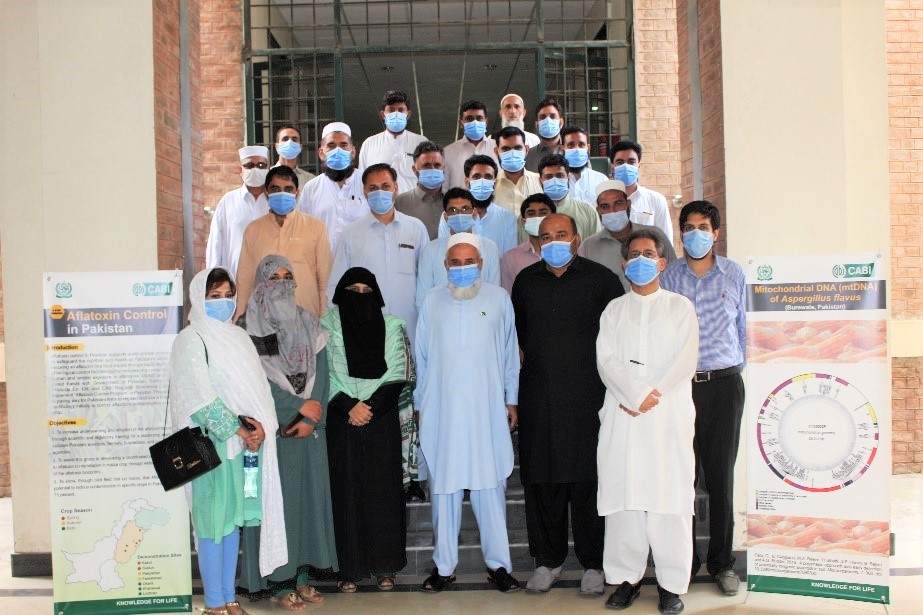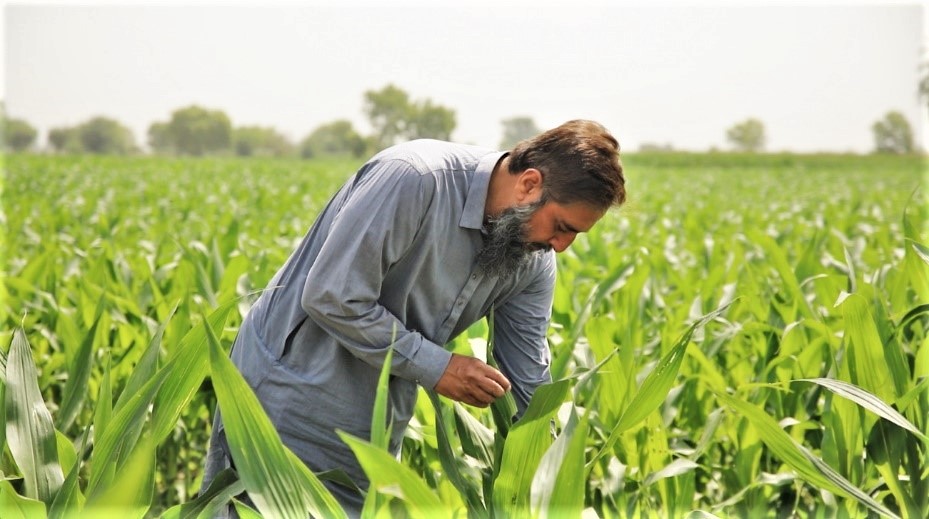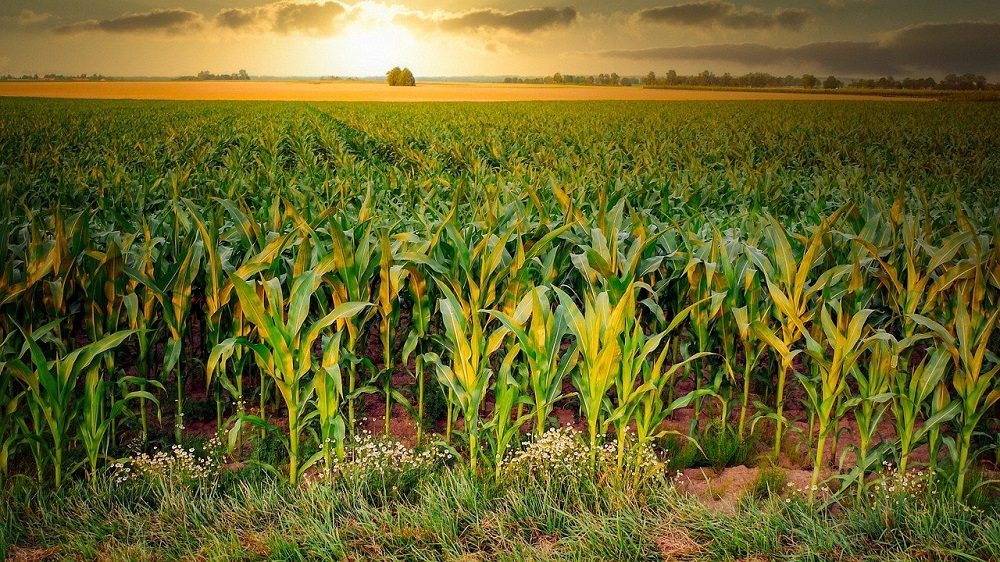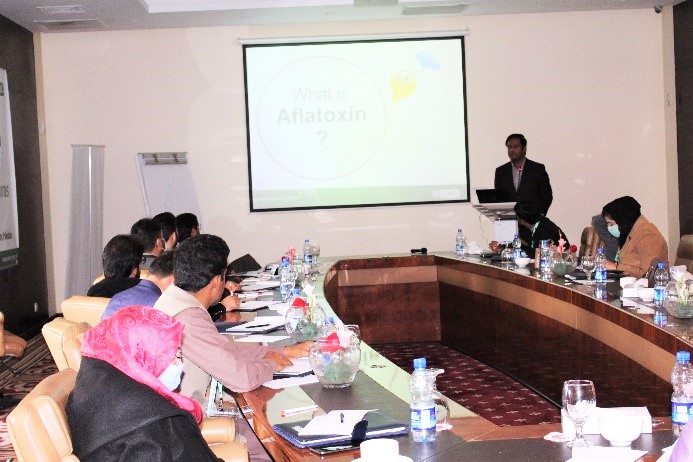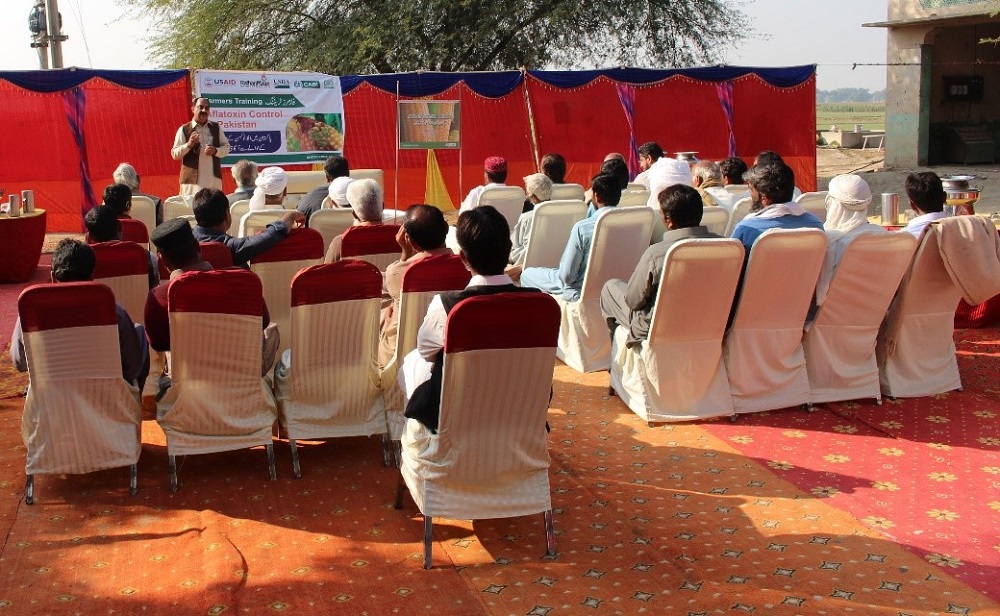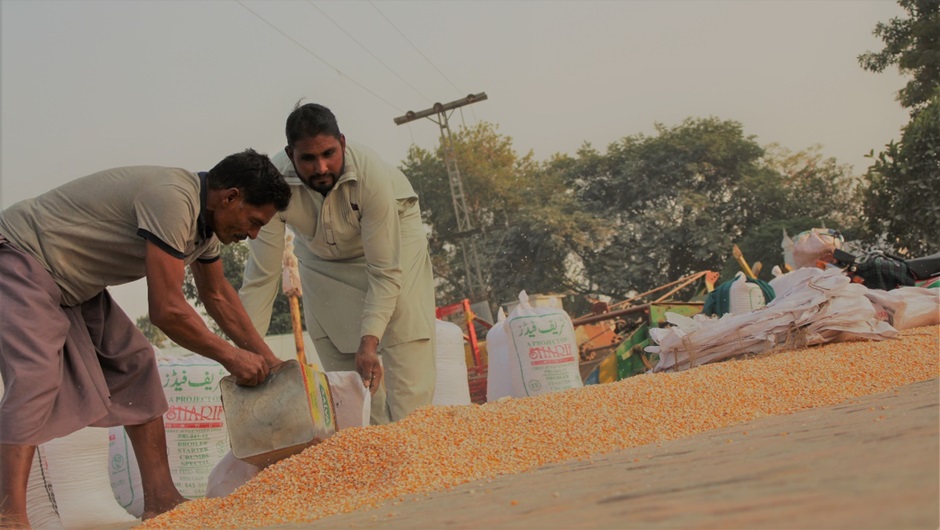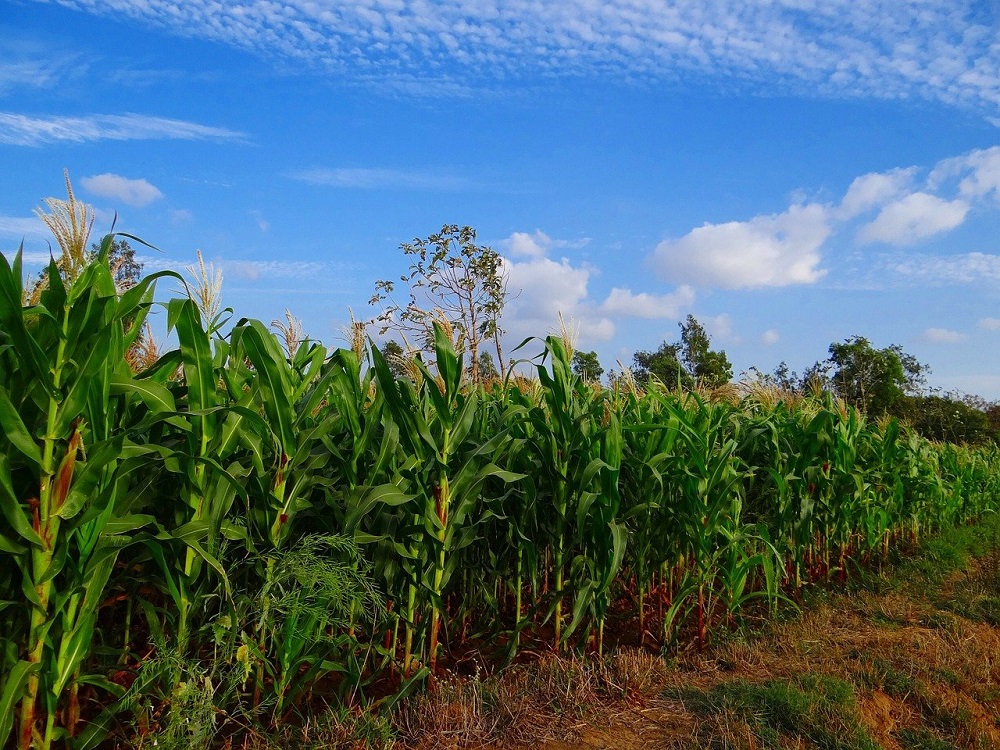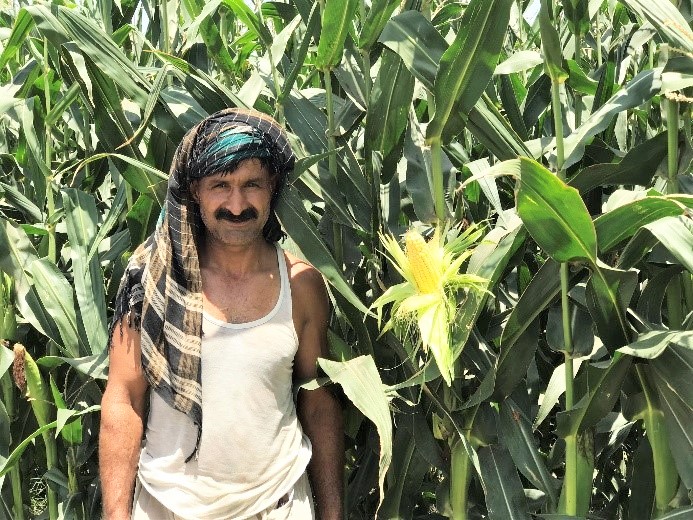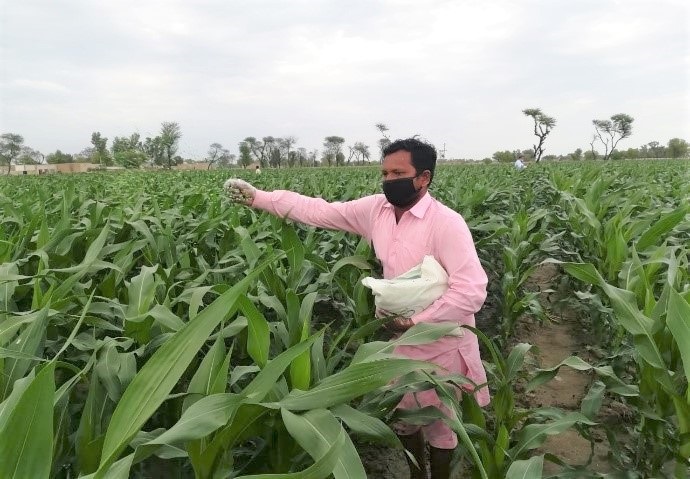CABI Blog
Author: Sabyan Faris Honey
You are here: CABI Blog
Aflatoxin risks highlighted to extension staff in Pakistan’s Khyber Pakhtunkhwa province
October 7, 2021
Babar Bajwa, Sabyan Faris Honey
No Comments
Pakistan produces many dry fruits such as almonds, walnuts, raisins, pine nuts and pistachios from which Khyber Pakhtunkhwa province has the major market share in production of dried fruits. These dried fruits are exported and consumed in large quantities worldwide during the winter seasons.
Aflatoxin control in Pakistan through the eyes of a maize grower from Punjab
July 27, 2021
Babar Bajwa, Sabyan Faris Honey
1 comment
Mian Muhammad Irfan is a maize grower from district Faisalabad in Punjab province. Here Rafhan Maize Products Co. Ltd procures thousands of tons of maize crop each year for processing. He is one of the thousands of maize crop farmers contracted with Rafhan Maize. Mr Irfan grows around one hundred acres of maize annually. Over…
Maize growers of Punjab helped to manage aflatoxins through biological control technology
May 4, 2021
Babar Bajwa, Sabyan Faris Honey
No Comments
Maize crop in Pakistan presents a remarkable success story from the last few years. For instance, the country’s maize production increased from 705 tonnes in 1971 to 7,000 tonnes in 2020 – growing at an average annual rate of 5.15%.
CABI helps build capacity of government stakeholders in Pakistan to tackle aflatoxins with biological controls
April 7, 2021
Babar Bajwa, Sabyan Faris Honey
1 comment
Aflatoxins are powerful fungal toxins that contaminate many agricultural products, including cereal grains, chilies, dry fruits and nuts. They also well affect milk because some livestock feed contains aflatoxin. In Pakistan, aflatoxin concentrations in harvested grain frequently exceed the level permitted in countries where aflatoxin in food and feed is regulated. The Aflatoxin Control in…
Aflatoxin control in Pakistan – promising developments to reduce aflatoxin problem in maize crop
March 1, 2021
Babar Bajwa, Sabyan Faris Honey
1 comment
Aflatoxin Control in Pakistan is a game changer initiative for the country’s maize industry. Maize growers adopt cultural practices, such as the drying of maize cobs on concrete grounds and delaying the harvesting to reduce moisture on the standing crop.
Building work starts on Pakistan’s first commercial facility to produce a biocontrol product for maize
December 7, 2020
Babar Bajwa, Sabyan Faris Honey
No Comments
Rafhan Maize Products Co. Ltd has begun building an AflaPakTM dedicated laboratory and production facility in Faisalabad which will be the first commercial facility in Pakistan for manufacturing a biocontrol product for the country’s maize sector.
Registration of biocontrol products for the agricultural sector in Pakistan moves a step closer
October 21, 2020
Babar Bajwa, Sabyan Faris Honey
1 comment
CABI, with the financial assistance of the United States Agency for International Development (USAID) and the United States Department of Agriculture, Foreign Agricultural Service (USDA-FAS), and technical assistance from IR-4 project, is helping Pakistan move a step closer towards the registration of biocontrol products to fight a range of crop pests and diseases which can…
Aflatoxin control in Pakistan: A project which will change landscape of country’s maize crop
October 5, 2020
Babar Bajwa, Sabyan Faris Honey
No Comments
Aflatoxin, produced by a poisonous fungus, is a serious threat to food security by contaminating many of Pakistan’s agricultural products, including cereal grains, chilies, dry fruits, nuts and milk.
Aflatoxins: A peril which limits the export of maize crop from Pakistan
July 22, 2020
Sabyan Faris Honey
1 comment
The agriculture sector is one of the most climate-sensitive sectors of Pakistan’s economy. It responds to temperature, precipitation, soil radiation, etc., which are directly associated with climate change. Rising temperature, uneven distribution of precipitation, floods, droughts, and other climatic disasters have affected human life along with socio-economic sectors of the world.
As a diamond cuts a diamond, ‘good fungus’ will reduce ‘bad fungus’ in maize crop
July 6, 2020
Sabyan Faris Honey
1 comment
CABI, along with its partners Rafhan Maize Products Co. Ltd and with the support of the National Agricultural Research Centre (CDRI, ASI), are busy evaluating the efficacy of AflaPak™ in Pakistan – a biological control agent/product for outcompeting the strains of aflatoxin producing Aspergillus flavus in maize.
- « Previous
- 1
- 2
- 3
- Next »
Subscribe to blog
DISCLAIMER
Views expressed in contributions do not necessarily reflect official CABI positions.
Archives
Categories
- Agriculture and International Development
- Veterinary and Animal Sciences
- Climate change and biodiversity
- Publishing
- Value chains and trade
- Crop health
- Environmental Sciences
- Human Sciences
- Tourism, Hospitality and Leisure
- Food and nutrition security
- Plant Sciences
- Gender and youth
- Digital development
- Development communication and extension
- Economic development
- Invasive species
- CABI Bioservices
- One Health

